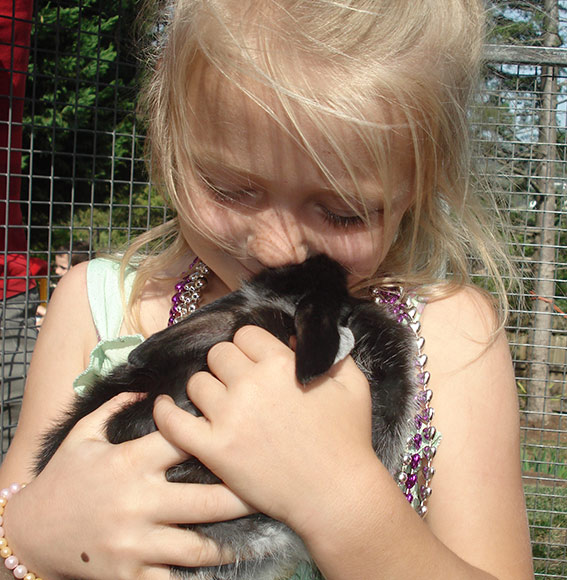My attention was drawn to a post in Facebook recently by an interstate friend. A mobile farm operator was defending themselves against accusations that what they did for a living was cruelty to animals.
The comments below the original post showed an overwhelming amount of support for the farm operator. Although the animal activist continued to state their case against what was in their opinion animal cruelty, their opinion was not shared by the majority of respondents.
Everybody is entitled to an opinion and there have been occasions when animal activists have exposed cruel practices and have had legislations changed to prevent the practice from continuing. In the instance of mobile animal nurseries, as with all businesses, there are probably good operators and, shall we say, those who are still learning.
However, I believe most operators love their animals and love sharing their knowledge and love of animals with children and adults.
Children especially feel a close connection to animals, but unfortunately many don’t get to interact with animals on a daily basis because their family doesn’t have a pet.
The ability to feel love is dependent on our ability to give love. We feel it more when we give it than when we receive it.
A pet will often bring out the best in us because although we may be self-conscious about expressing love to a person, we generally don’t hold back with an animal. It doesn’t matter to whom we express love, as long as we express it.
For those children who don’t have pets to love, animal visits to schools, kindas and child care centres are not only allowing them to develop the ability to love, nurture and feel a connection to another living creature without being judged or rejected. It also gives them an opportunity to learn a bit about each of the animals and why they are farmed.

For older children it can prompt discussions on ethics in the farming industry. And for all visitors it can be the beginning of awareness, that the decisions we make can affect the lives of the animals in our backyard environment, community or country. Whether it is when we make a choice about the food products we buy in the supermarket, how we care for our pets or how we deal with insects rodents and weeds in our own backyards.
While I believe that the operating standards of mobile animal demonstrators should be continually improving. The best way to do this I believe is to work with them rather than against them. People will resist being converted to a different way of seeing things by attacking arguments, because that makes them wrong and nobody likes to be wrong.
Recently a small group of animal farm operators and their staff, who are interested in providing the best care to their animals, attended what we hope will be the first of many best practice sharing events. Some of the topics covered include, how to recognise and minimise stress in a variety of animals. Ways to avoid heat stress on the job. Hot weather policies. Staff training. Vehicle loading procedures for hot weather and more. If you would like to know more please email info@animalsonthemove.com.au
If you are interested in booking an animal experience for your school, kinda or childcare centre there are many to choose from, from mobile farms to native animals and a whole lot in between.
Go to www.animalsonthemove.com.au
